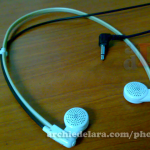Audio Transcriptionists Must Dos
 Audio transcription greatly depends on the element of accuracy. Without it, the transcribed document loses its sole purpose of relaying truthful and consistent message to the reader. Every jot and character of a given manuscript must conform to the fact and should never deviate from the standards of congruency.
Audio transcription greatly depends on the element of accuracy. Without it, the transcribed document loses its sole purpose of relaying truthful and consistent message to the reader. Every jot and character of a given manuscript must conform to the fact and should never deviate from the standards of congruency.
As an audio transcriptionist you need to have the aptitude to transcribe what is heard precisely. This includes colloquialisms that may be in use by a variety of speakers, being able to use punctuation in a manner that the intonations of the speakers are captured as much as possible, and being able to type the dialogue exactly as it occurred.
Because audio transcription also means documentation, it needs to be done the highest possible accuracy. Its legal implication could never be over-emphasized since this is where judicial cases resort to when there has been an error. A single mistake could mean the integrity and reliability of people concerned. Errors should be minimal, or better yet, its possibility should be eliminated to ensure precision and exactness.
As an audio transcriptionist you should be able to know different terminologies so you can understand well what the speaker is saying. It is a must to understand what the speaker is saying and to know what it is really so he can type it right. A transcriptionist should widen his knowledge when it comes to language. In order to be an affective transcriptionist you must have the research skills so that you may be able to learn more about terminologies to understand clearly what the speaker is saying.
An audio transcriptionist should also have strong typing skills so that you can perform your job well. As a transcriptionist, you must be a fast typist so that you can type what the speaker is saying.
And above all these, the life and welfare of every person is very much contingent to the accuracy of each single content of the transcribed material



